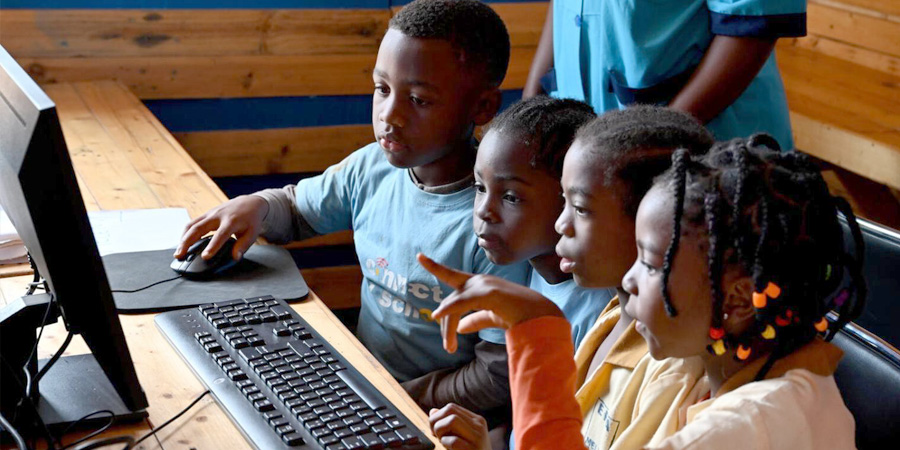The integration of technology in education in Africa is a dynamic and transformative process that holds significant promise for improving learning outcomes and addressing educational challenges across the continent. Here are key aspects of how technology is being integrated into education in Africa:
- E-Learning Platforms: The development and adoption of e-learning platforms provide students with access to a wide range of educational resources. These platforms offer interactive lessons, digital textbooks, and multimedia content, enabling students to engage with educational materials online.
- Digital Content and Open Educational Resources (OER): The creation and dissemination of digital content and open educational resources reduce the cost of textbooks and educational materials. OER promotes the sharing of knowledge, making quality learning materials more accessible.
- Smart Classrooms: The introduction of smart classrooms equipped with interactive whiteboards, projectors, and digital learning tools enhances the learning experience. These technologies encourage interactive teaching methods, making lessons more engaging for students.
- Distance Learning Programs: Technology facilitates distance learning programs, enabling students to enroll in courses and degree programs offered by institutions located in different regions or countries. This is especially relevant for those who cannot attend traditional brick-and-mortar institutions.
- Teacher Professional Development: Technology supports teacher training and professional development through online courses and workshops. Educators can enhance their teaching skills and stay updated on innovative pedagogical approaches.
- Digital Literacy Programs: Initiatives focusing on digital literacy skills help students and teachers become proficient in using technology for educational purposes. These programs ensure that individuals are equipped with the skills necessary to navigate the digital landscape.
- ICT Infrastructure Development: Investment in information and communication technology (ICT) infrastructure, including internet connectivity and computer labs, is essential for successful technology integration in education. Improving access to reliable internet services is crucial for effective e-learning.
- Virtual Labs and Simulations: Virtual labs and simulations provide students with practical, hands-on experiences in subjects like science and engineering. This virtual approach enhances understanding and practical skills development, especially where physical laboratories may be limited.
- Gamification of Learning: The gamification of learning involves incorporating game elements into educational activities to make learning more engaging and enjoyable. Gamified approaches can motivate students and enhance their retention of information.
- Data Analytics for Personalized Learning: The use of data analytics allows educators to track students’ progress and tailor educational content to individual needs. Personalized learning plans based on data insights can help address specific learning challenges and optimize educational outcomes.
While the integration of technology in education in Africa presents numerous opportunities, it’s important to address challenges such as digital inequality, infrastructure limitations, and the need for ongoing teacher training. A holistic and sustainable approach to technology integration can contribute to the advancement of education throughout the continent.

